What is life like for the 15.8 million children who live in food insecure homes? To find out, Witnesses to Hunger, a research and advocacy group, gives digital cameras to mothers of young children who are living on the edge. By documenting their daily struggles and sharing their personal stories, they provide living testimony on the urgent need to end America’s hunger crisis. See the photos below and click on their first names to learn more about each mother.
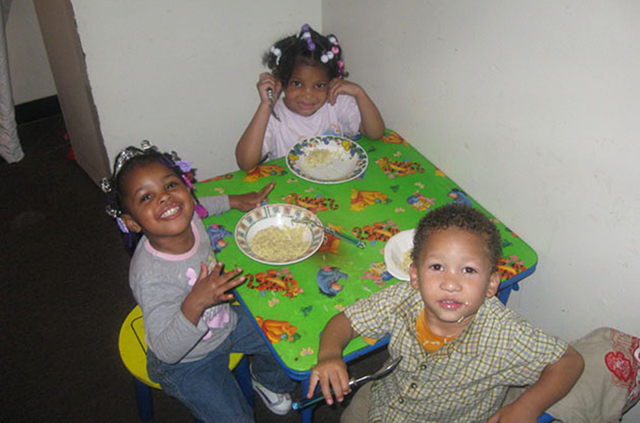
Oodles of Noodles (Photo: Witnesses to Hunger/Melissa H.)
The kids know my food stamps got cut off because when they came home from school today, they didn’t have their snacks. So they know that I didn’t go to the market. I really didn’t tell them why or anything like that, because I don’t think they understand. But it affected them. — Melissa H., Philadelphia
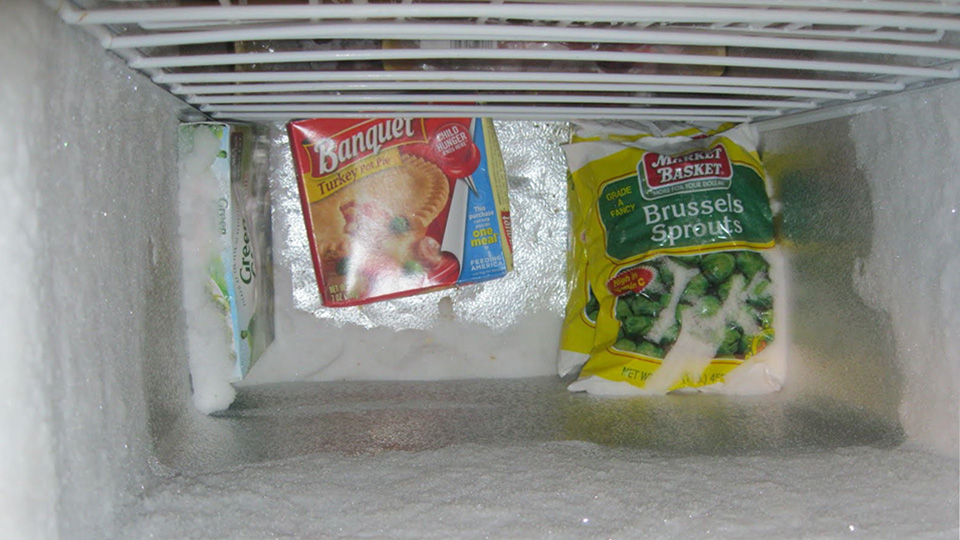
(Photo: Witnesses to Hunger/Bonita C.)
That’s the deep freezer now. It’s empty. It’s just those two items in that one little box. How is this supposed to feed a family of six? — Bonita C., Boston
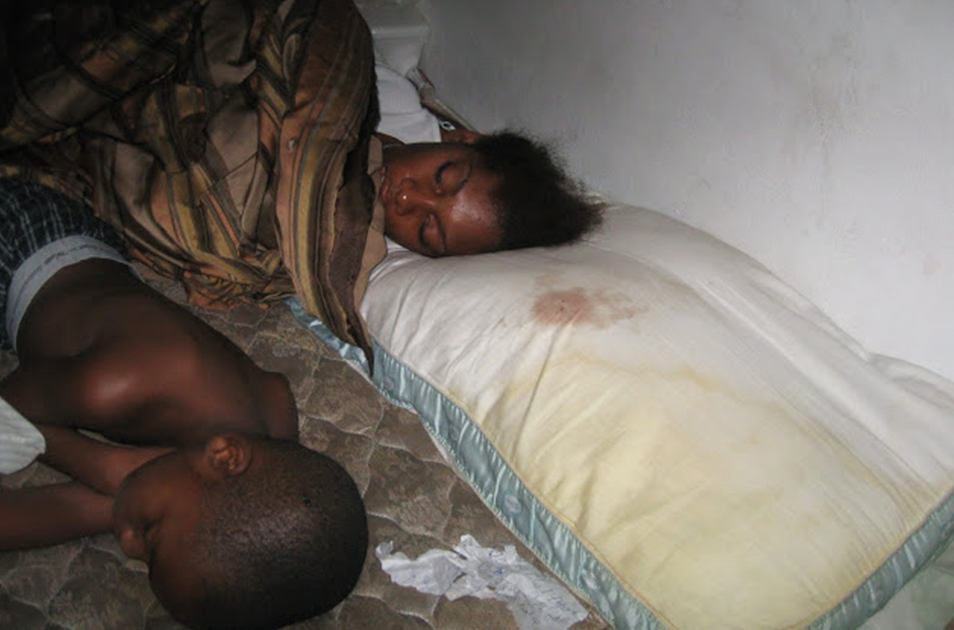
(Witnesses to Hunger/Angela S.)
That’s my bed. I need pillows. I need sheets. The house looks good on the outside because I know how to fake it till I make it. But it’s not really secure. It just shows that even though I have come a long way, I’ve still got a long way to go. — Angela S., Philadelphia
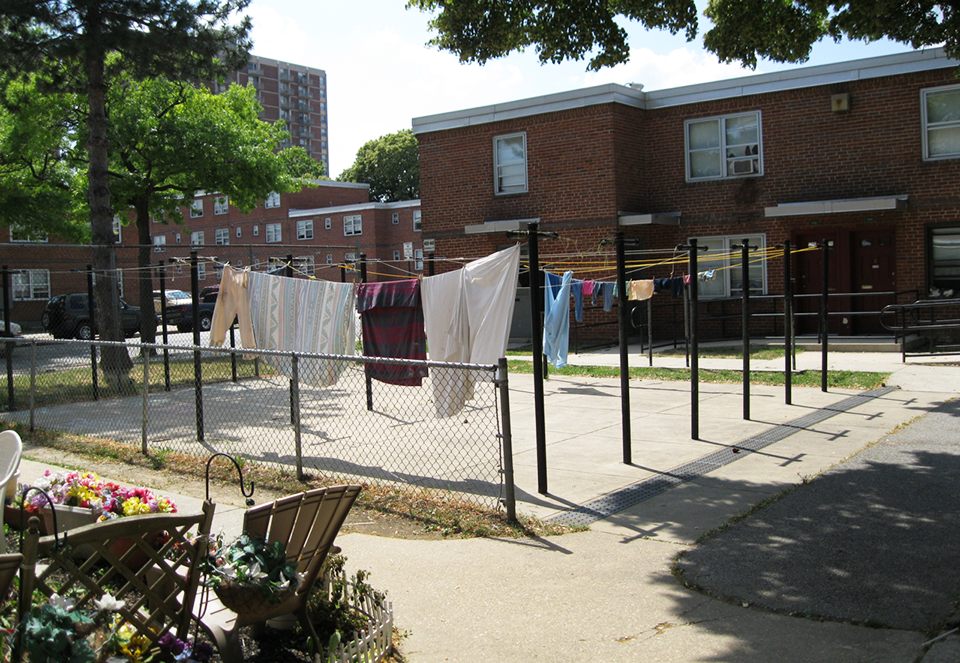
(Photo: Witnesses to Hunger/Faith C.)
This is our development. It’s not in a very good neighborhood, but everyone sticks together. Everyone’s trying to make it. It’s just a high-poverty neighborhood where everyone knows everyone. Our court captain, she always says that just because we live in the projects, we don’t have to treat it like the projects. She tries to keep the court up to date and clean. She has a little committee where they plant flowers, and she tells you where to go to get free food, things like that. — Faith C., Baltimore
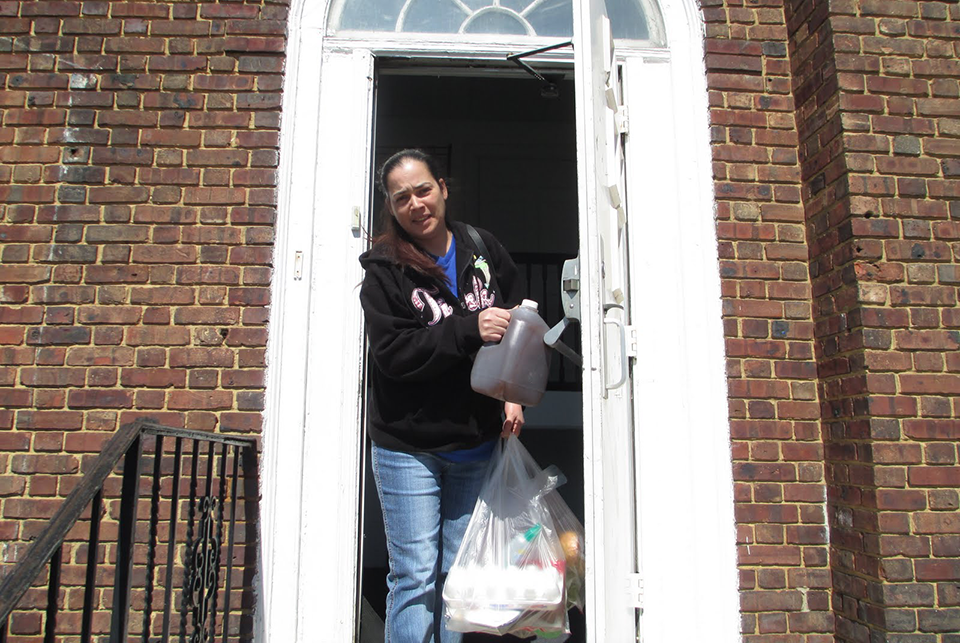
(Photo: Witnesses to Hunger/Nia T.)
I’ve been to food pantries. Sometimes the food is good and sometimes it’s not. The day that I went the food wasn’t that good. Some of the things were, but some of the things were outdated. I was kind of nervous going in at first, but I went in and went into smiling faces. They didn’t make me feel bad because I was there for food. It was an experience. — Nia T., Camden
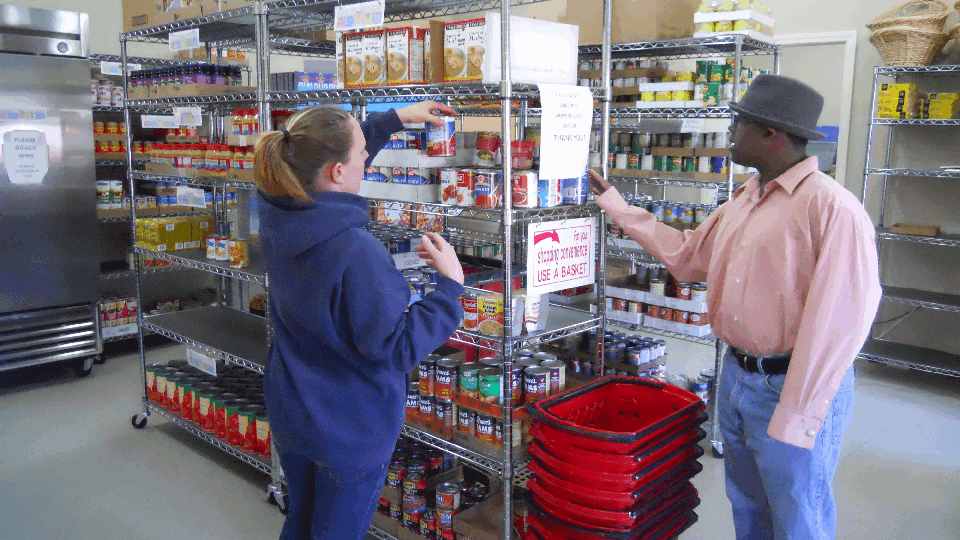
(Photo: Witnesses to Hunger/Charlene M.)
That’s my son, Dominic. This is the food pantry of the Johnnycake Center. My son, he’s special needs. He has Down syndrome. He’s been volunteering for the pantry for like three years now. I might be a person in need of some of this stuff, but when you’re in need you can also give back. I wouldn’t ever take if I didn’t need, and so I give back through volunteering. — Charlene M., Rhode Island
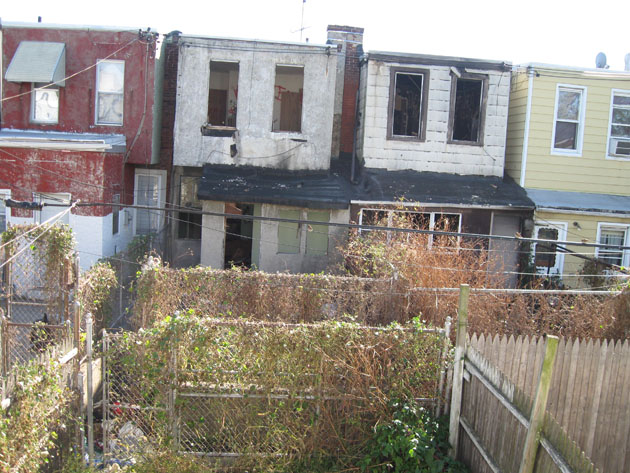
(Photo: Witnesses to Hunger/Angelica R.)
Those are abandoned houses behind my yard. Those two houses were set on fire — that got my daughter sick for a week with her asthma. I hate it. I hate this neighborhood. — Angelica R., Philadelphia
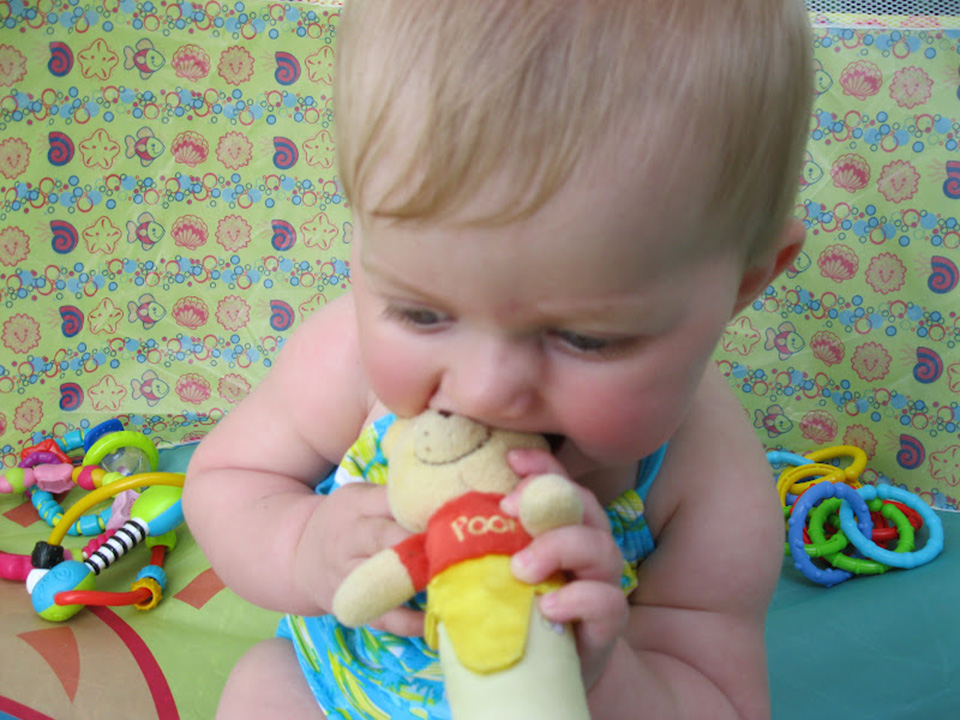
(Photo:Witnesses to Hunger/Margaret M.)
I ate really healthy when I was pregnant with her, with the help of WIC. I think there was a difference in her health because of the nutrition that I had gotten with her. I had poor health with my older children because of the unhealthy food I ate during my pregnancy, and it made a difference. Receiving WIC for the first year of her life helped her to be a healthy baby who has a good immune system and great developmental skills. — Margaret M., Baltimore
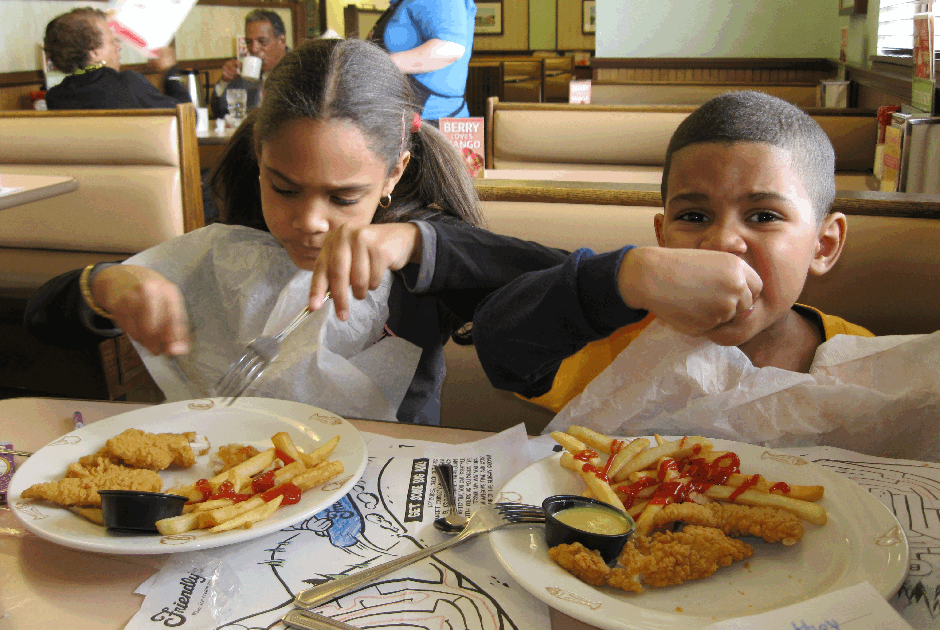
(Photo:Witnesses to Hunger/Taina P.)
My daughter, she loves this restaurant. And I told her, I don’t have a lot of money, but when I get some money, I’ll take you. And that day, I think it was a Friday, she came and I showed her the money. She said, “Oh mommy, now you have money, so we can go out.” This food isn’t healthy, but it’s the only place I can afford to take my kids because I don’t have the money for a better restaurant. — Taina P., Boston
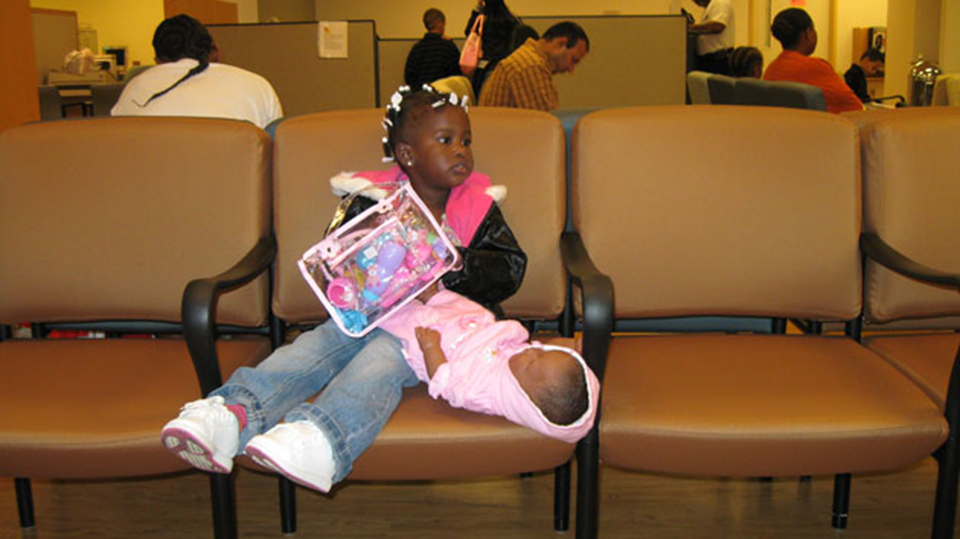
(Photo: Witnesses to Hunger/Crystal S.)
My daughter said, “I am tired of waiting.” You go to the doctor’s office, and you wait hours to be seen. They give you an appointment at 8 o’clock. At 12 o’clock, you might be sitting in that same spot. — Crystal S., Boston



